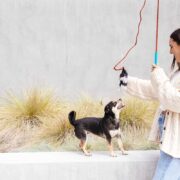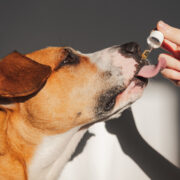What Does It Mean When a Dogs Sneezes?
Just like you, your furry friend may sneeze for a variety of reasons. It may be nothing more than something irritating in your dog’s nose or it might be something more serious.
In some cases, it may even be nothing to sneeze at. Let’s look at some of the reasons why your pooch might be sneezing and how to know if it’s something minor or something more serious.
Environmental Irritants Can Cause Sneezing
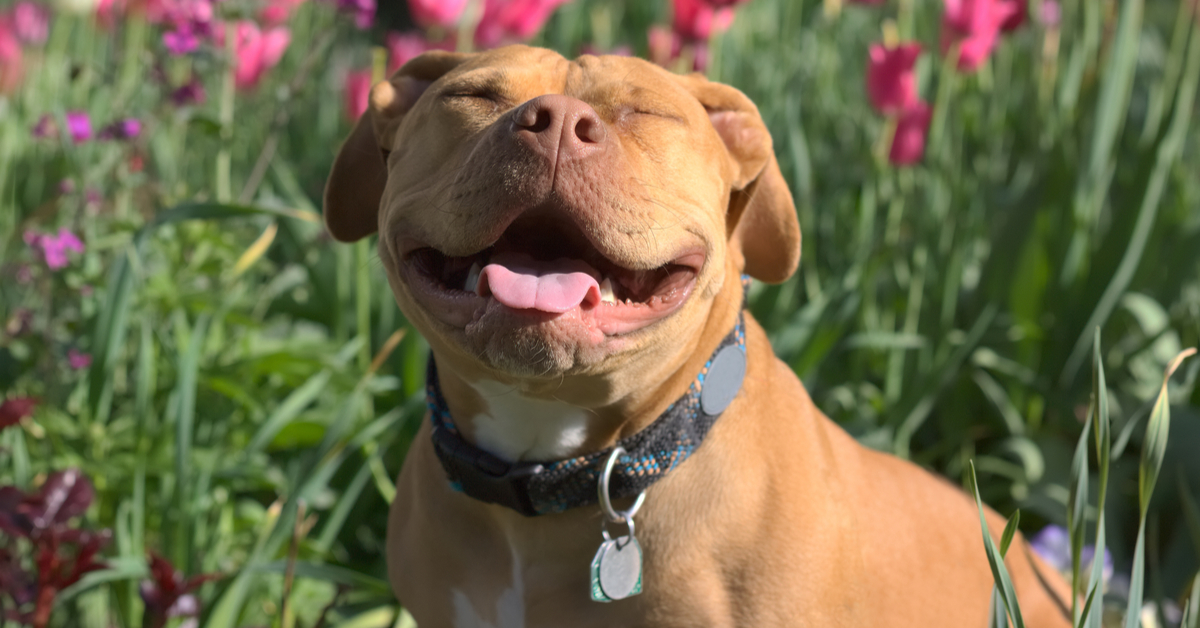
One common reason dogs sneeze is that they have an environmental irritant stuck in their nose. You see this happening frequently after they’ve been digging in the dirt or after sticking their snout in the grass. It’s common to get a blade of grass stuck in their nasal cavity and that makes them sneeze.
It’s also possible for dust to cause your dog’s sneezing or he might not like your perfume. I’m sure he means no offense, but sometimes strong smells such as household cleaners, cologne, or other kinds of fragrant chemicals can cause your best friend to sneeze in protest.
Then there’s reverse sneezing. Reverse sneezes are sudden, repeated inhalations through the dog’s nose that sound weird. These types of sneezes can also happen as a result of irritants in the nasal cavity that cause inflammation.
Dogs Sneeze When They’re Playful
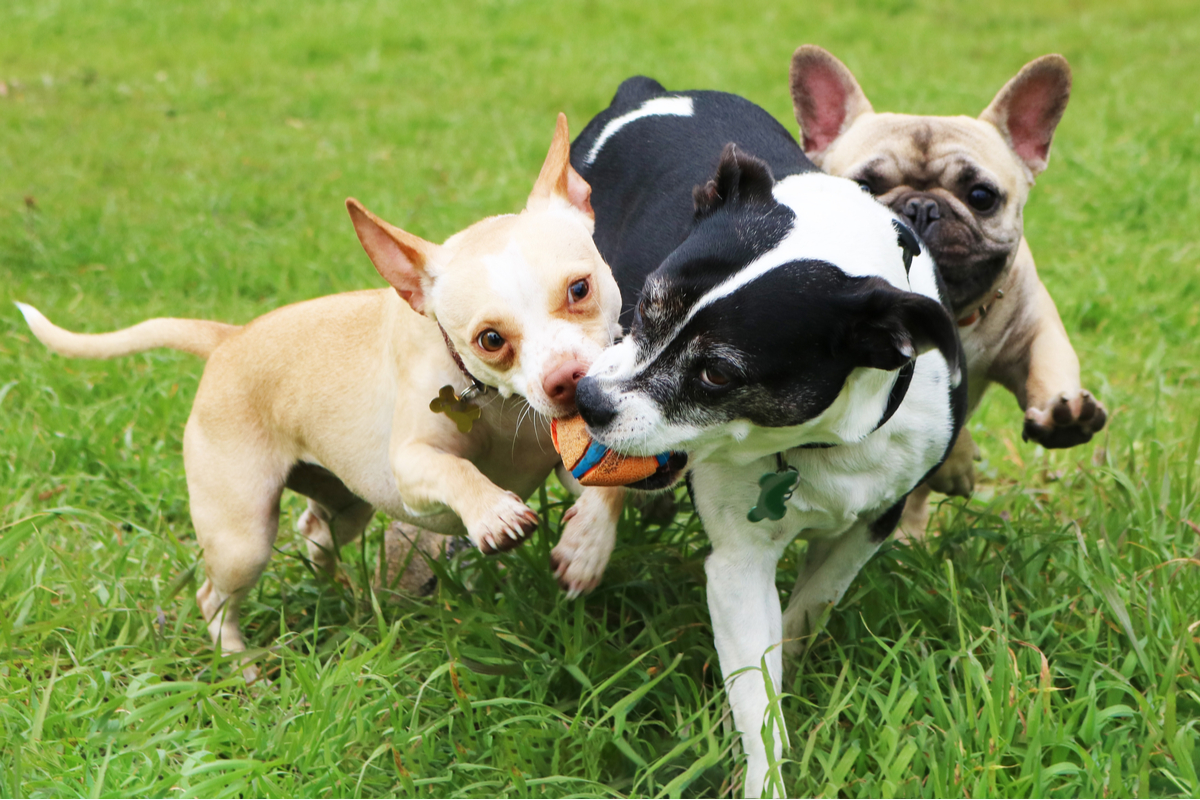
It’s not at all uncommon for your dog to sneeze when he’s being playful. Why do dogs sneeze when playing, though? This shows he’s excited about playtime, and it’s even called ‘play sneezing.’ This is your dog’s way of letting you or another dog know that he is just having fun and means no harm. He might also make facial expressions and curl up his lips, and when he wrinkles his nose as a result, it can cause him to sneeze.
This type of play sneeze tends to be more of a short snorting rather than a sneeze that comes from the lungs. Play sneezing is also more common in small breeds, but regardless of the breed, it’s usually nothing to be concerned about. It’s all in good fun! It’s also a good idea to pay attention to body language when dogs play.
When your dog gets excited, he’s also more likely to have reverse sneezes. This is particularly true in small dog breeds like terriers.
Dogs Sneeze as a Form of Communication
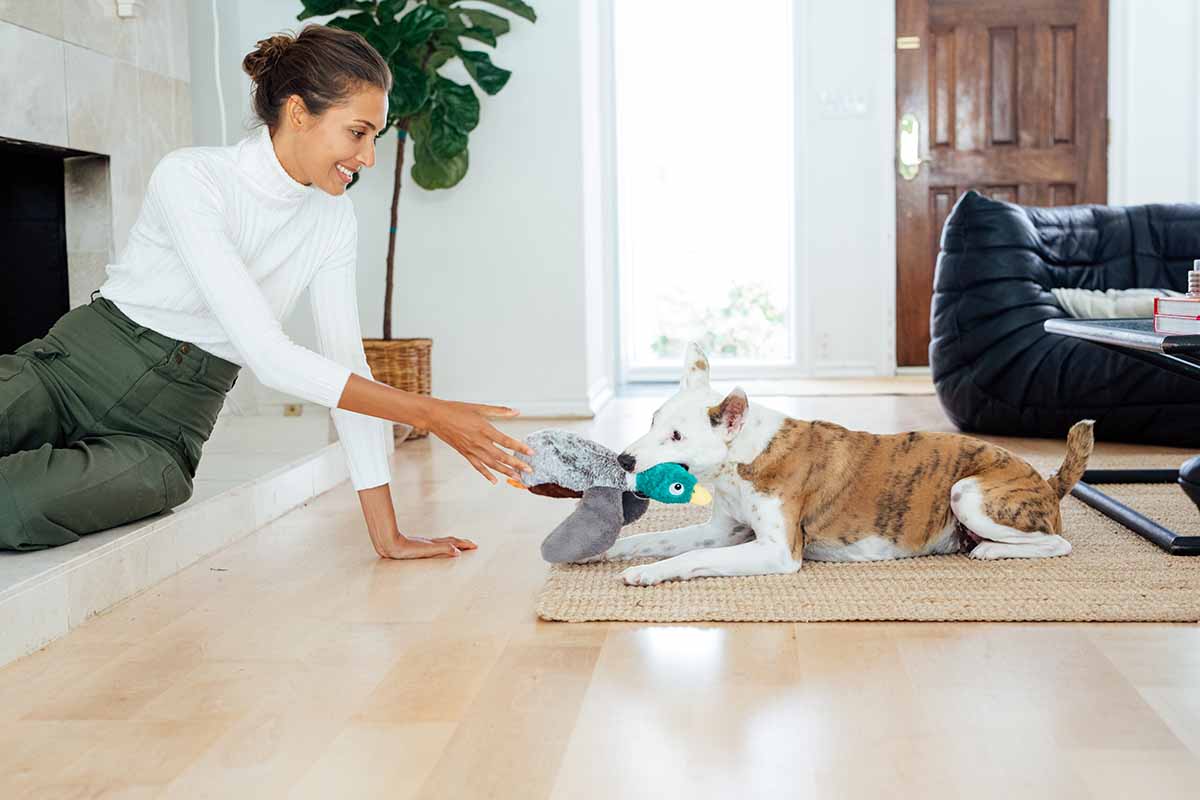
You might not believe it, but one study on African dogs in Botswana showed that the dogs were using sneezing to vote on group decisions! That’s wild, isn’t it? This is just one way that dogs use sneezing as a form of communication.
As mentioned above, when your dog is playing with you or other dogs, they also communicate using their sneezes, and they can use sneezing as a calming signal or to let you know that they need a break. They also sneeze to say that they are feeling comfortable with what’s going on.
You might never have guessed that your dog’s sneezes meant so much!
Dogs Use Sneezing to Get Attention
Have you ever seen your dog kind of bend down on his front legs and sneeze at you while wagging his tail? He’s trying to tell you that he wants to play. Dogs sneeze like this frequently to get your attention and let you know they want something.
These are really fake sneezes. It’s just a way for them to say, “Hey, look at me!” If you watch, you’ll often see them moving in closer as they sneeze at you so there’s no way you can ignore them.
Certain Dog Breeds Sneeze More Often
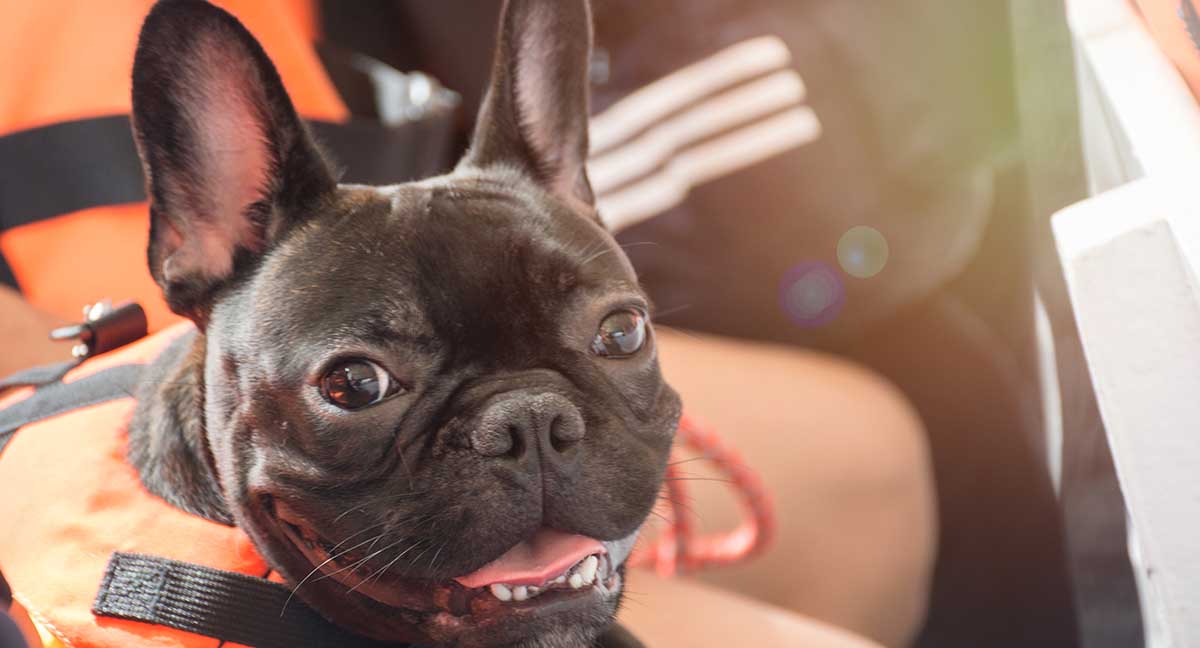
Certain breeds of dogs will sneeze more often than other dog breeds. Notably, brachycephalic breeds — those are the dogs with the ‘smooshed in’ faces like pugs, bulldogs, and Boston terriers — have more problems breathing because of their face and throat shape. As a result, they sneeze more often than other breeds that have regualr airways.
Dog Sneezing as a Sign of Health Problems
Of course, it can also be the case that your dog’s sneezing because he needs to; he might have some kind of health condition such as a cold. If that’s the case, you’ll likely see some nasal discharge to go along with the sneezing, but let’s look at some specific health problems that can cause your dog’s sneezing.
Allergies Cause Dog Sneezing
Allergies are one common cause of dog sneezing. Just like you can be allergic to various kinds of pollen, so can your dog. It can help to pay attention to any patterns you see with your dog’s sneezing.
Does it happen more during certain times of the year? Is it also accompanied by a runny nose or watery eyes? If you can pinpoint some patterns, you might be able to identify the allergen that is causing his sneezes.
Nasal Obstructions Can Cause Dog Sneezing
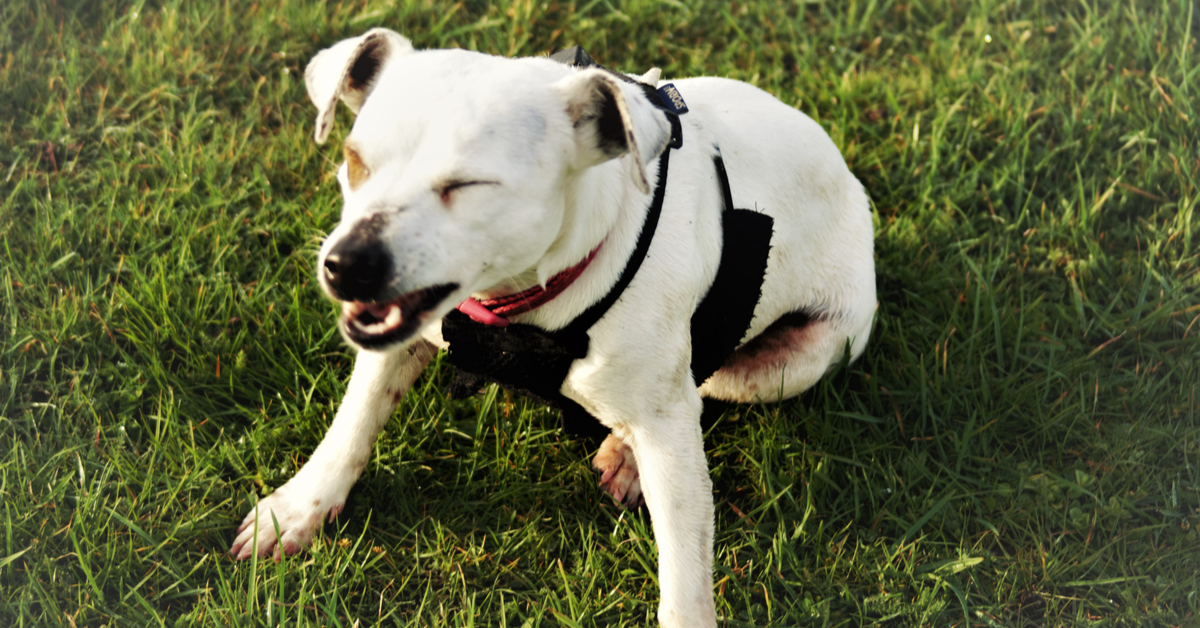
Another problem that can cause your dog to sneeze is an obstruction of some kind. It’s possible that your dog has something stuck in his nasal passages like certain types of foreign bodies such as grass seeds called foxtails, thorns, porcupine quills, or even parts of a toy.
There are also certain kinds of cancerous nasal tumors that can cause an obstruction. If you think he’s got some kind of obstruction, you’ll want to have that checked out with your veterinarian since removing the cause can be tricky.
Usually, if your dog has a nasal obstruction, you’ll notice excessive sneezing, snorting, and even pawing at his nose repeatedly. He’s trying to get the obstruction out of there, but he’s going to need some help.
This problem is more common in hunting dogs because they’re always out running around sampling their environment. It’s very easy for foreign objects to get stuck in your hunting dog’s nasal passages as they do this.
Dog Sneezes Indicating Infections

If your dog keeps sneezing and has other symptoms, then you’ll want to get him checked out. He could have a cold or another medical condition like nasal infections (in his sinuses or other areas of the nasal cavity) such as kennel cough or fungal infections.
These conditions can cause sneezing fits as well as other types of symptoms. The other symptoms your dog might experience that indicate a problem include nasal discharges (runny nose), watery eyes, appearing to be in pain when sneezing, pawing frequently at his nose, or even nose bleeds. All of these indicate that you need to make a trip to your vet.
If you notice that your dog is deep sneezing from the lungs, he could also have nasal mites. These are tiny parasites that are more common in large breed dogs and can cause numerous symptoms including nose bleeds, reverse sneezing, nasal discharge, facial itching, labored breathing, head shaking, and noisy breathing in addition to deep sneezing.
Final Thoughts About Dog Sneezing
Good dog owners are aware of changes in their dog’s behavior. If you’re wondering “why is my dog sneezing all the time,” it might be time to take him for a visit to his favorite DVM. Your dog’s health comes first.
It may be nothing more than a tickle in his nose or seasonal allergies, but if it’s something more serious like a nasal infection or a nasal tumor, you’ll be glad you got him in for some treatment. It’s what best friends are there for!
